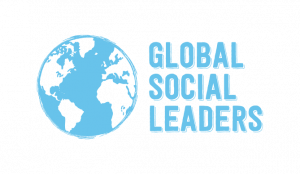Invitation to the GSL Summer Catalyst @Home | UK
We are delighted to invite socially active and creative young people to take part in an online global leadership development programme.
- Age Eligibility | 11 to 15
-
School Eligibility | State funded-school in the UK (this is a funded programme with eligibility criteria)
-
Duration | One week live course (part time 3 hours per day delivered in the mornings on week days) followed by the option to complete 3 online courses in your own time, with scheduled times to access support
-
Dates | The one-week live course has three options available – you can choose during registration your preferred week
– 27th-31st July – Fully Booked– 3rd-7th August – Fully Booked
– 10th-14th August -
Access online courses | After taking part in the ‘one-week’ – course – Participants will have access to 3 weeks of online courses and live support from the GSL team. This will be available to access in your own time.
-
Fully funded | The programme is fully funded by Innovate UK, and there is no charge for participation (if you are eligible and selected to take part).
The GSL Summer Catalyst @Home is designed by Future Foundations and the Wellington Leadership and Coaching Institute in partnership with Wellington College. The programme is funded by Innovate UK.







